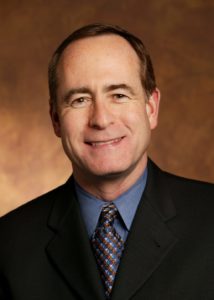As part of the 25th Commemorative Year, we will be highlighting our dedicated Board of Directors, interviewing each of them to learn more about their passion for the Foundation, how being on the Board has impacted their lives, and what they see for the future of MSF.
 In his professional position as the Executive Vice President and General Counsel of Carlson, Inc., John Sullivan provides primary support to the company’s Board of Directors. Prior to his current role, John held numerous legal positions, including that of General Counsel, at Imation, Silicon Graphics, and Cray Research, Inc.
In his professional position as the Executive Vice President and General Counsel of Carlson, Inc., John Sullivan provides primary support to the company’s Board of Directors. Prior to his current role, John held numerous legal positions, including that of General Counsel, at Imation, Silicon Graphics, and Cray Research, Inc.
John is also active in local community organizations. He recently served as the Chair of the Board of Trustees for the Minneapolis Foundation. He is also the past Chair of the Board of Directors for the Regions Hospital Foundation. He also was an adjunct faculty member of the University of Minnesota Law School for three years.
John served on the Board of Directors of Minnesotans United for All Families, the organization that defeated the Minnesota Constitutional Amendment defining marriage as “the union of one man and one woman.” John has also served as President of the Board of Directors for the Jungle Theater; on the Board of Governors for The Children’s Theatre Company; on the Board of Directors for James Sewell Ballet; and on the Board of Directors for Grace House, an adult foster care facility for people living with HIV/AIDS.
John was a founding member of the Human Rights Campaign (HRC) Business Council in 1997 and served as its co-chair from 2001 to 2003. HRC is the nation’s leading civil rights organization working on behalf of the gay, lesbian, bisexual, and transgender (GLBT) community. The Business Council is a national executive group that advises HRC and corporations on creating a safe and productive environment, and equality-based benefits programs, for all employees. John previously served on the HRC Board of Governors from 1999 to 2003 and served on the HRC national Board of Directors from 2003 until 2007. He recently completed his service as one of the original members of HRC’s Emeritus Council. John also served for one year on the Board of Directors of OutFront Minnesota, the organization serving the GLBT community in Minnesota.
How has your experience as an MSF Board Member impacted you personally and/or professionally?
Matthew’s death deeply touched me, both as a gay man and as simply a human being with compassion. Having served on the Board of the Matthew Shepard Foundation has been a privilege and an opportunity. The privilege is being able to work alongside Judy and Dennis Shepard and witness the powerful impact they have had on peoples’ lives around the globe. As a Board member, I have the opportunity to help shape the direction and priorities of the Foundation, which is an immense responsibility, but incredibly rewarding one. I am grateful to be able to bring my professional experiences to an organization with such a powerful mission and committed leadership.
What do you believe has been the Foundation’s greatest achievement over the past 25 years?
The Foundation’s focus has changed over the years as the demands of our society and culture have changed (not always for the better). The one thing that has not changed is our commitment to “Erase Hate” in all its forms. We were all very proud when the federal hate crimes statute was passed and named after Matt (and James Byrd Jr.) and it was certainly a significant achievement for the Foundation. Now, we are committed to making certain that communities and law enforcement are aware of this tool, and how to use it effectively. That work is far from done, but we are continuing to work on ways to take full advantage of the law’s power to help erase hate.
What do you see as the Foundation’s greatest opportunity or responsibility as we move into the future?
Sadly, we are aware that not only is our work far from done, but it has become significantly more challenging in the past couple of years. Our responsibility, and opportunity, is to continue to tell Matt’s story. In sharing his story, especially through his parents, we are trying to make sure the next generation is aware that this work has always been challenging, but that by working together we can make progress. We may be forced back a step or two, but we will eventually continue moving forward together. Yes, this work for respect and equality is hard, but it must be done. Together.
